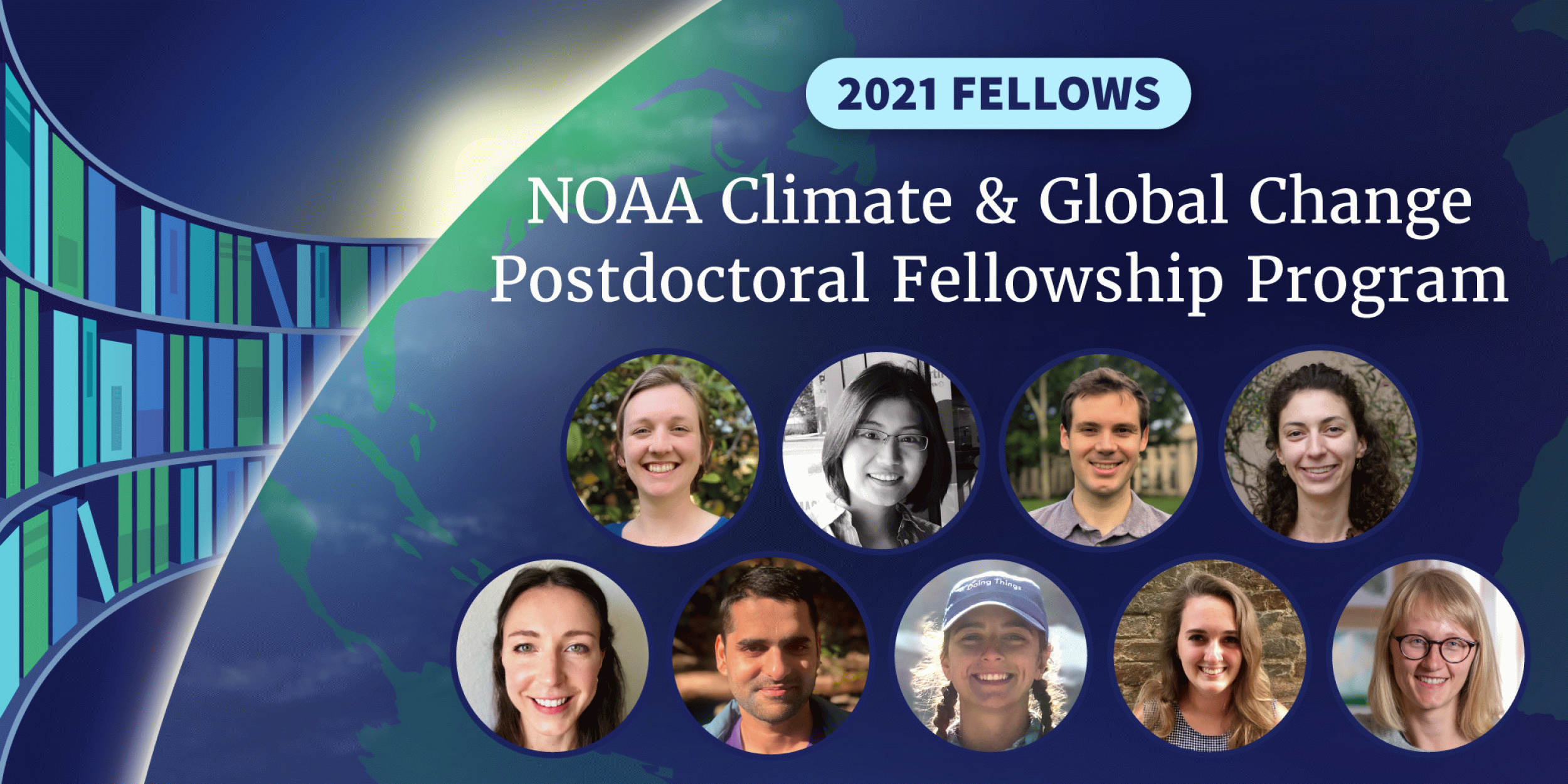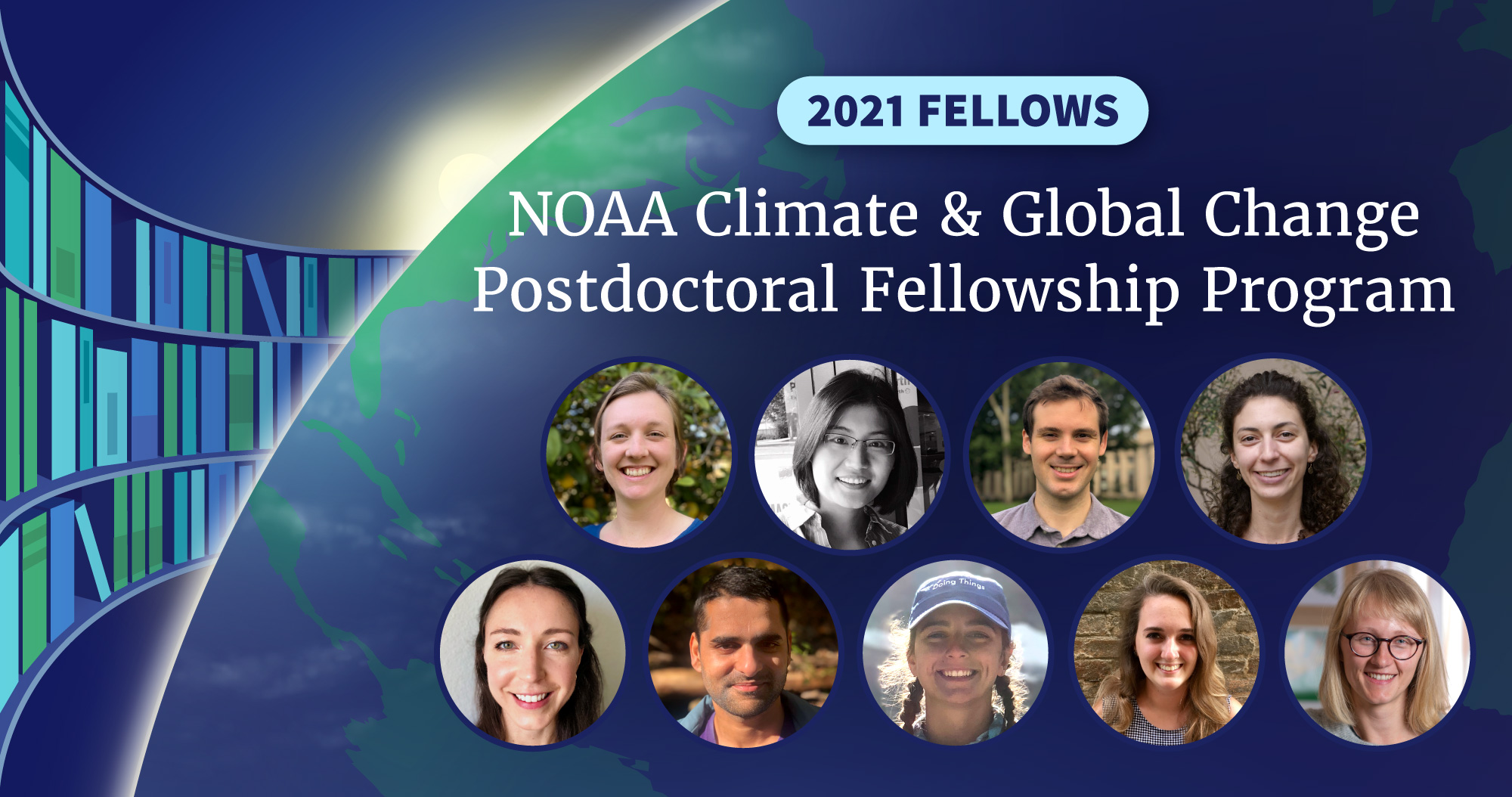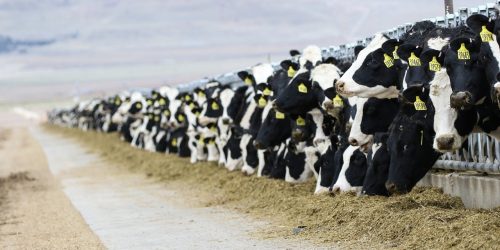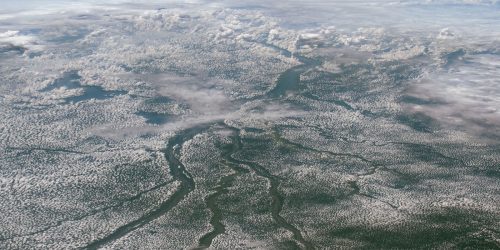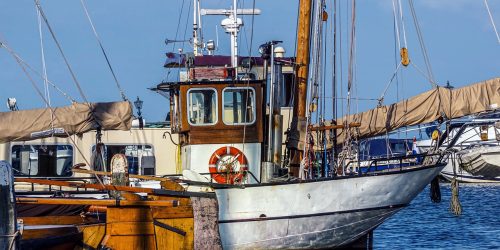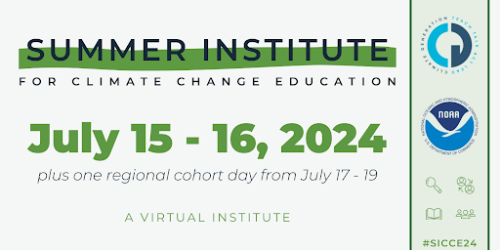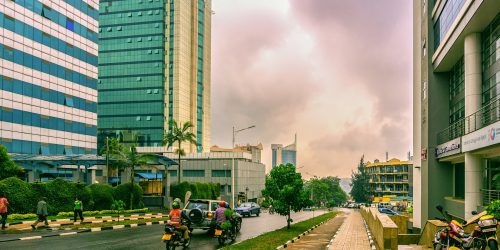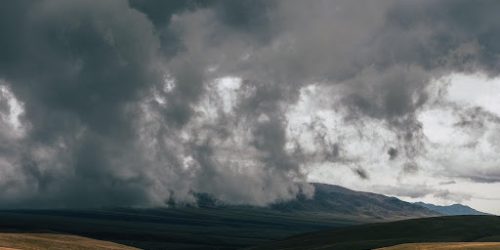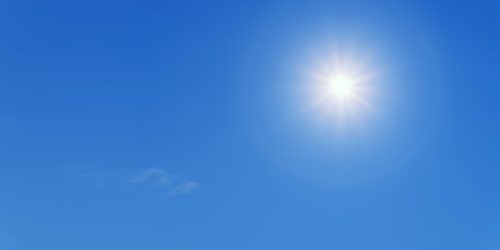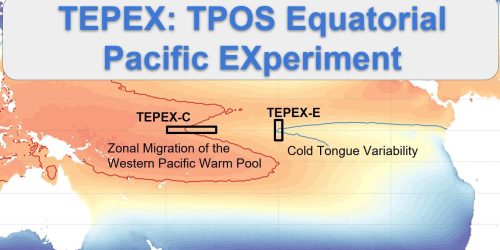Nine new postdoctoral fellows are commencing cutting-edge research projects that will contribute innovative climate science to the research community as well as NOAA’s mission.
These fellows are the new 2021-2023 class of NOAA Climate and Global Change (C&GC) Postdoctoral Fellows, selected by NOAA’s Climate Program Office (CPO) and the University Corporation for Atmospheric Research (UCAR).
“Since 1991, the NOAA Climate and Global Change Postdoctoral Program has been cultivating the next generation of climate and global change experts,” said Wayne Higgins, Director of NOAA’s Climate Program Office. “With this year’s class of nine talented fellows, the Program has now sponsored almost 250 fellows who are collectively helping to build a diverse community of experts in climate and global change research.”
Chosen from over one hundred applications through a competitive review process, the fellows are promising early career scientists who are within five years of completing their PhDs. Over the next two years, the nine fellows will be hosted by mentoring scientists at universities and research institutions around the country to conduct projects focused on observing, understanding, modeling, and predicting climate variability and change.
“The NOAA C&GC Postdoc Fellowship assembles a diverse community to focus on the greatest challenges in climate and global change, while giving fellows the intellectual and institutional resources to succeed,” said Jin Huang, the NOAA C&GC Postdoc Fellowship Program Federal Liaison and CPO Earth System Science and Modeling Division Chief.
“As nearly three decades of the Climate and Global Change Program have shown, the fellows are future leaders of climate research, pushing the frontiers of NOAA’s climate science,” adds Monika Kopacz, NOAA C&GC Postdoc Fellowship Program Science Liaison and CPO Atmospheric Chemistry, Carbon Cycle, and Climate Program Manager.


Sponsored by CPO and managed by UCAR’s Cooperative Programs for the Advancement of Earth System Science (CPAESS), the NOAA C&GC Postdoc Fellowship Program helps create and train the future leading researchers needed for climate studies. “It is truly our honor to help NOAA develop the next generation of leading climate scientists with this prestigious program,” shared Hanne Mauriello, Director of UCAR’s CPAESS.
The Program was originally founded in 1990 by former CPO Director, Dr. J. Michael Hall, in response to the lack of trained climate scientists to analyze the massive quantity of data collected by the international Tropical Ocean Global Atmosphere Program (TOGA), which ran from 1985 to 1994. Over the past 30 years, the Program has developed an outstanding reputation of attracting the best and brightest PhDs in the climate sciences.
The Program traditionally supports two forums where fellows can engage with NOAA and each other— a NOAA Summer Institute every other July, as well as an annual alumni luncheon at the American Geophysical Union (AGU) Fall Meeting in December. The global pandemic, however, required the Program to think outside the box in order to continue facilitating interactions between the fellows and the larger NOAA community. Since January of 2021, UCAR has hosted monthly virtual seminars featuring presentations by two current C&GC postdocs along with an invited NOAA scientist.
“The monthly virtual seminars have helped connect the postdocs with each other and also provided a great opportunity for the postdocs to interact with NOAA scientists,” said Huang, who regularly attended the seminars along with Kopacz. “Considering its convenience and low carbon footprints, we plan to continue the monthly virtual seminars even after the pandemic.”
“While NOAA and the community at large benefit from fellows’ future success, the monthly meetings are an opportunity for NOAA scientists to benefit more directly and immediately from the talents that the fellows bring to their research areas,” said Kopacz. “I expect that although the meetings are virtual, the fellows will form stronger bonds with NOAA and with each other due to the meetings’ frequency and NOAA scientist participation in them.”
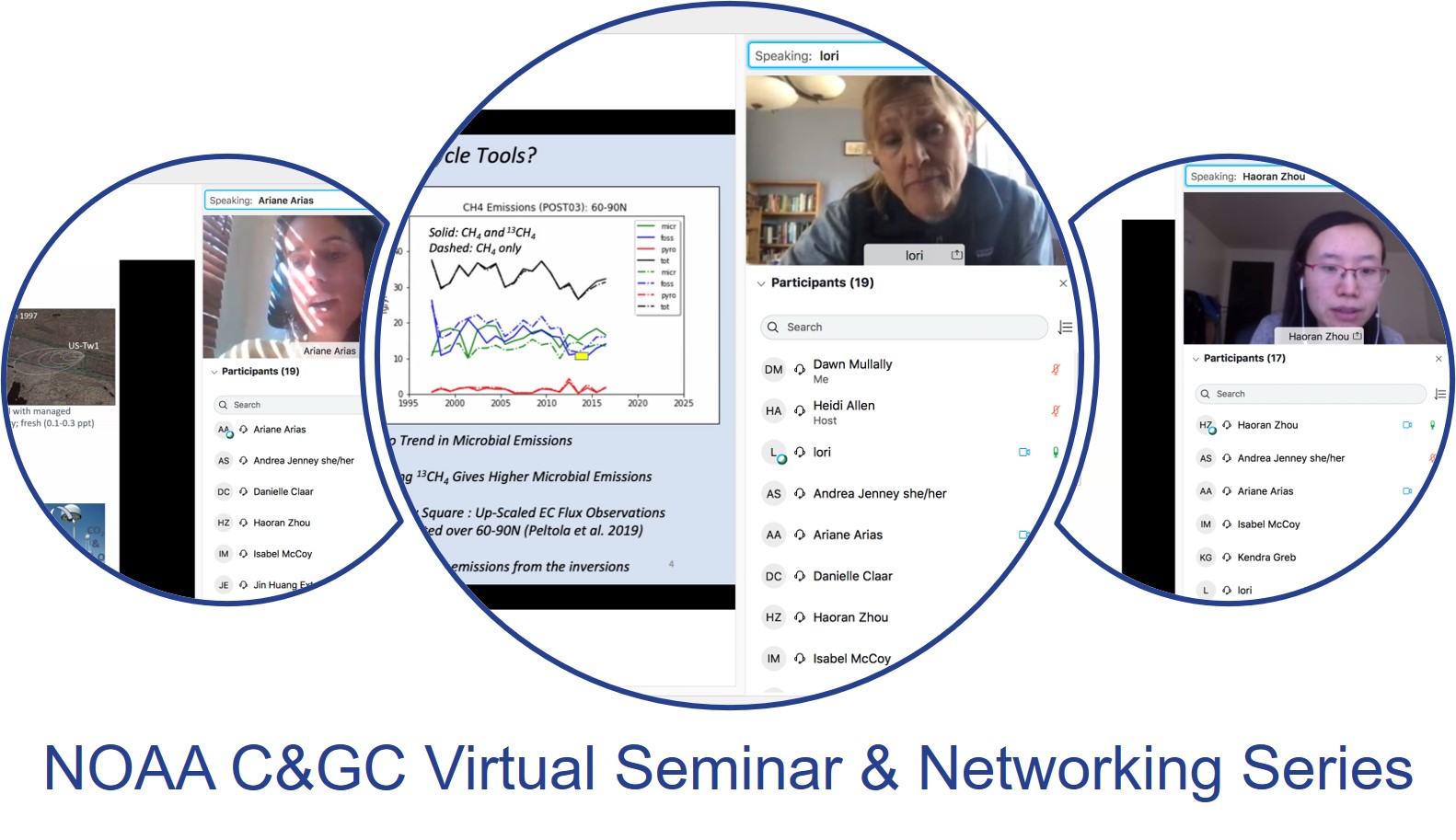

Fellows Haoran Zhou (Yale University) and Ariane Arias-Ortiz (UC Berkeley) present at the March 2021 NOAA C&GC Virtual Seminar & Networking session along with guest speaker Lori Bruhwiler from the NOAA Global Monitoring Laboratory. (Credit: Dawn Mullally, UCAR)
While the forms of communication may evolve, the postdocs’ achievements after the fellowship continue to benefit NOAA and the larger scientific community. C&GC fellows go on to serve notable roles in climate science, from the first acting NASA Senior Climate Advisor to academic researchers investigating the submarine melting of glaciers, the atmosphere’s self-cleansing capacity, or the role of atmospheric circulation in the prediction of El Niño and La Niña events.
Many former fellows credit the Program with both expanding their independence as scientists as well as supporting their professional growth at a crucial time in their career. For the incoming class of fellows, this means being connected to a network of current and former NOAA postdocs and a community of scientists across a wide range of disciplines related to climate science.
“The NOAA C&GC postdoc was a formative experience exposing me to new ideas and people and allowing me to grow as a scientist,” said Dr. Daniel Stolper, a 2015-16 C&GC Postdoc Fellow and assistant professor at the University of California, Berkeley. “Furthermore, the community of current postdocs and previous fellows continue to be wonderful to interact with and see every year at AGU.”
This year Stolper joins the ranks of almost twenty C&GC fellows who have transitioned from postdoc to host. “I am beyond pleased and honored to now be able to be a host myself and hopefully provide the same mentorship I was so lucky to receive.”
2021 NOAA Climate & Global Change Postdoctoral Fellowship Awardees
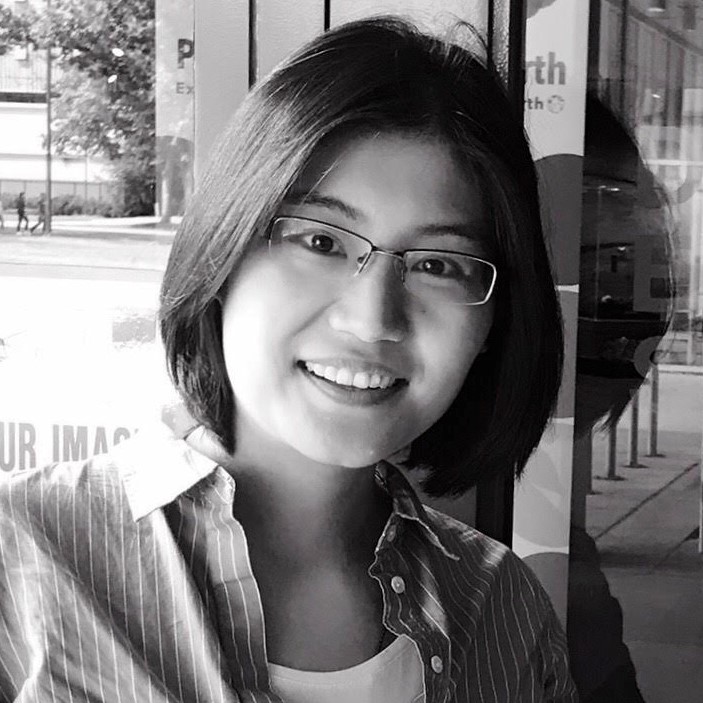

Yue Dong
Proposal Topic: Understanding the Pattern of Recent Tropical Pacific Sea-surface Temperature Trends
Host: Dr. Lorenzo Polvani, Columbia University
PhD Institution: University of Washington


Henri Drake
Proposal Topic: Parameterization of Bottom Mixed Layer Eddies and Their Impact on Climate
Host: Dr. Sonya Legg, Princeton University
PhD Institution: Massachusetts Institute of Technology/Wood Hole Oceanographic Institution


Brittany Hupp
Proposal Topic: Utilization of Northern California Current Historical Records for Paleoproxy Development
Host: Dr. Jennifer Fehrenbacher, Oregon State University
PhD Institution: University of Wisconsin-Madison
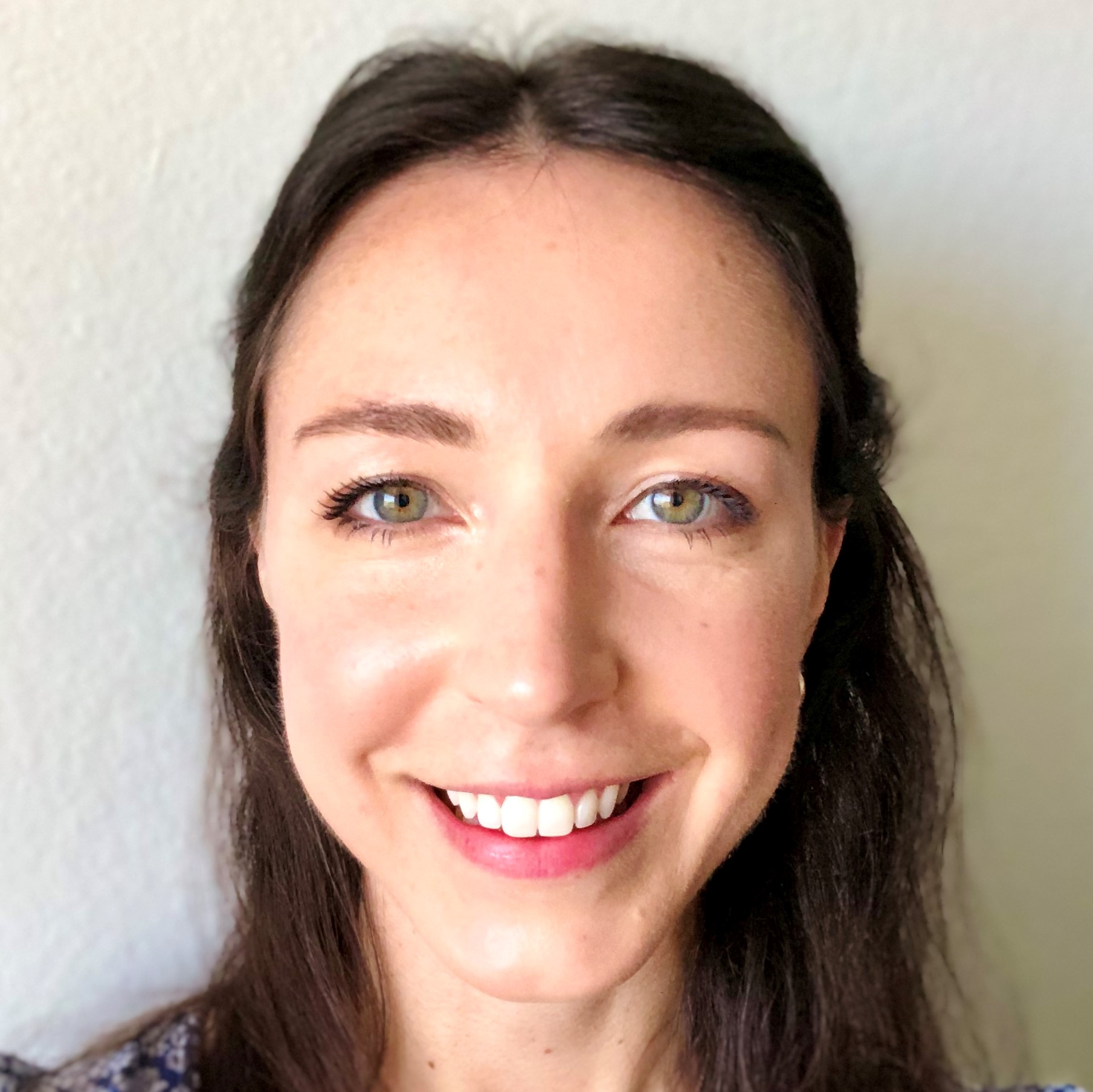

Laura Larocca
Proposal Topic: An Arctic-wide Assessment of Glacier and Ice Cap Lifespans
Host: Dr. Darrell Kaufman, Northern Arizona University
PhD Institution: Northwestern University


Lindsay McCulloch
Proposal Topic: Can Canopy Gaps Resolve the Large Uncertainty in Tropical Forest Nitrogen Cycling and Carbon Capture?
Host: Dr. Ben Taylor, Harvard University
PhD Institution: Brown University
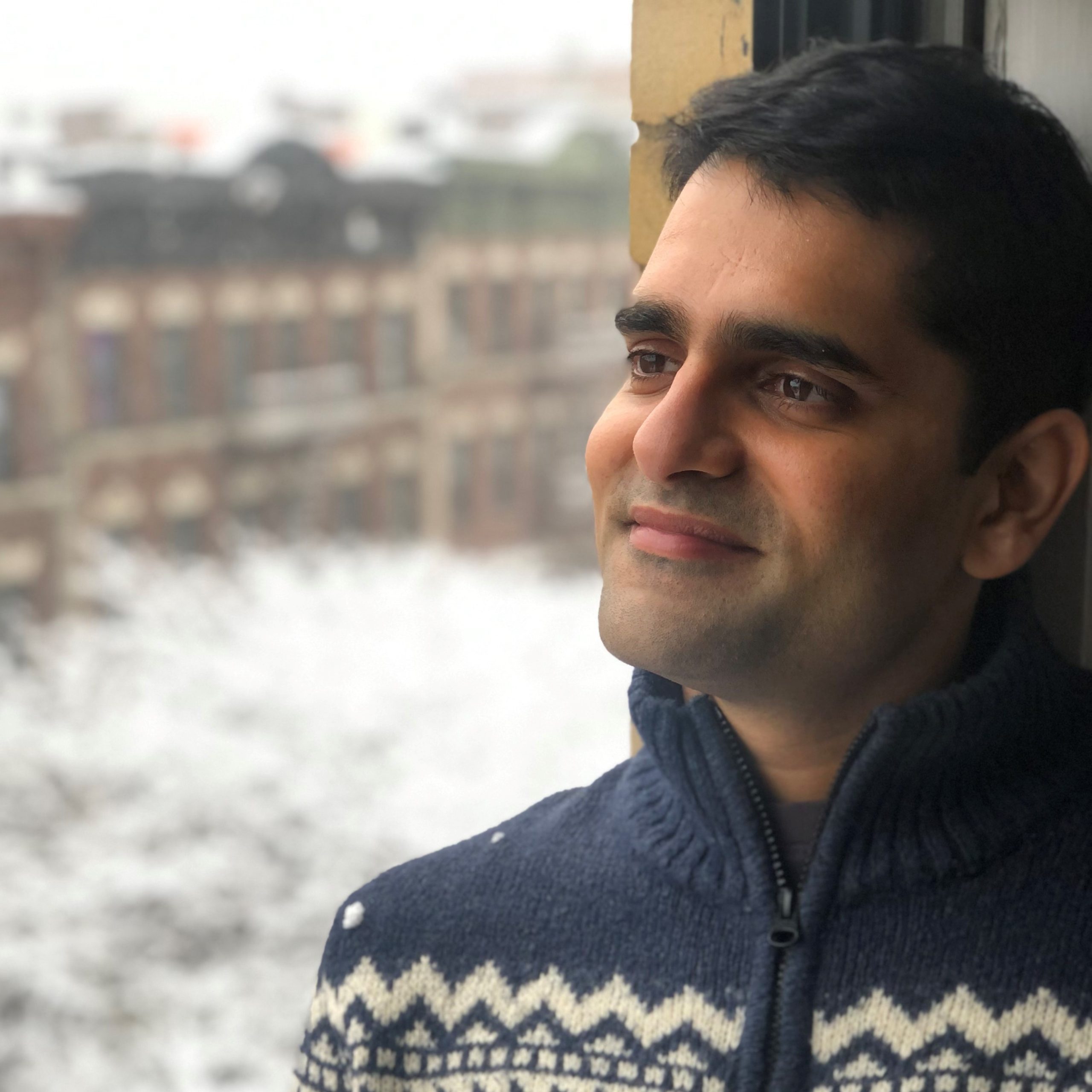

Mukund Palat Rao
Proposal Topic: The Fate of Forest Carbon from Photosynthesis to Biomass Under Drought and Climate Change
Host: Dr. Troy Magney, University of California, Davis
PhD Institution: Columbia University
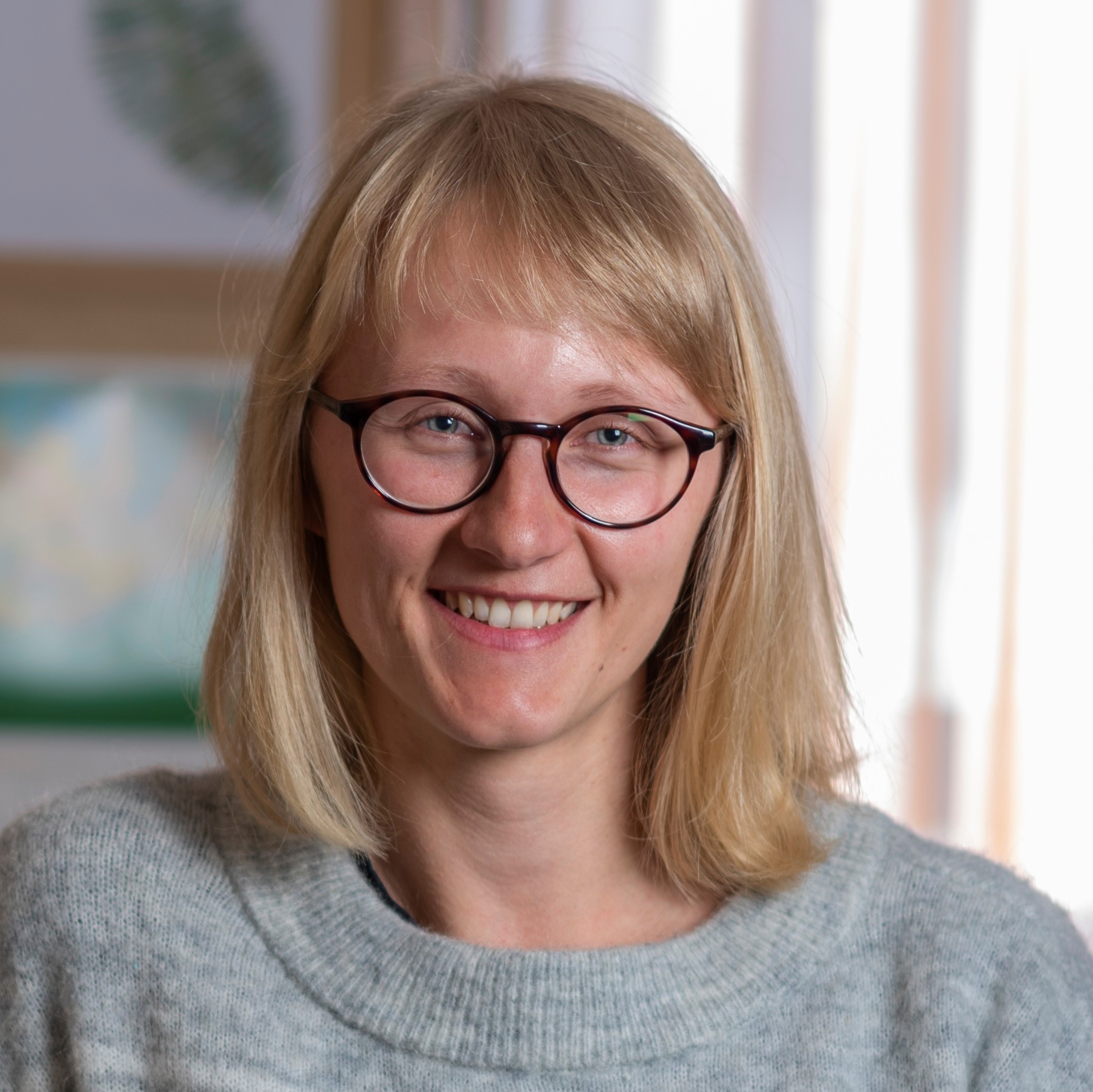

Lettie Roach
Proposal Topic: Hemispheric Contracts in the Seasonal Cycle of Sea Ice
Host: Dr. Ian Eisenman, University of California, San Diego
PhD Institution: Victoria University of Wellington
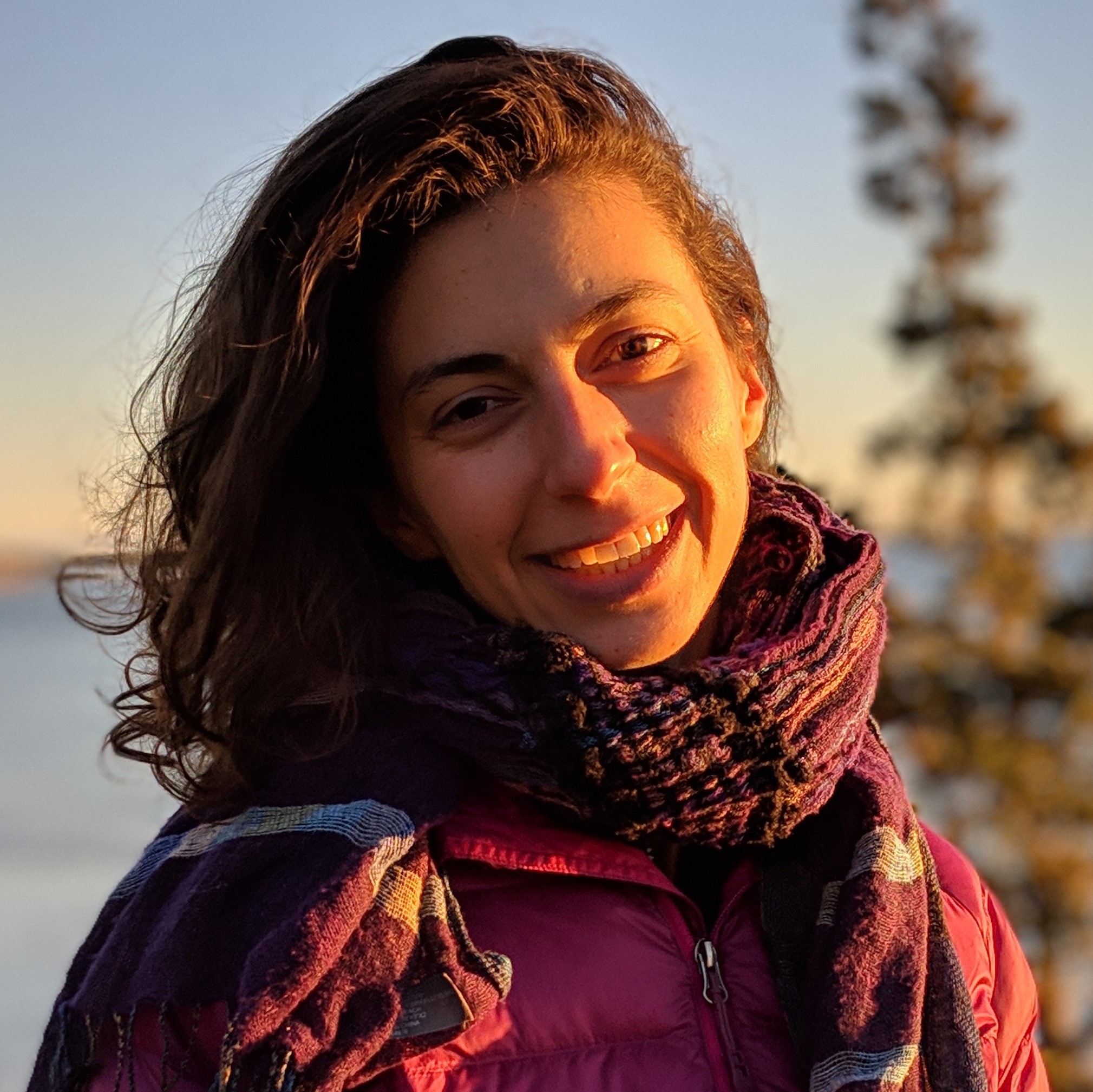

Katherine Siegel
Proposal Topic: Impacts of Forest Management Types on Wildfire Severity, Ecological Assemblages, Climate Change Resistance, Ecosystem Processes, and Socially Vulnerable Communities in the Western U.S.
Host: Dr. Laura Dee, University of Colorado, Boulder
PhD Institution: University of California, Berkeley


Barbara Wortham
Proposal Topic: Assessing the Role of Global Co2 Variability on Plant Function Throughout the Last 55ka in California
Host: Dr. Daniel Stolper and Dr. Todd Dawson, University of California, Berkeley
PhD Institution: University of California, Davis


